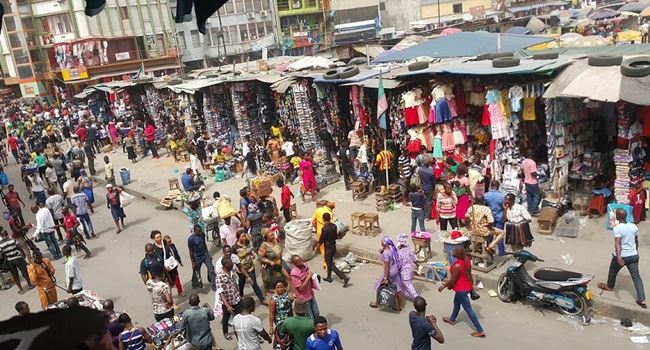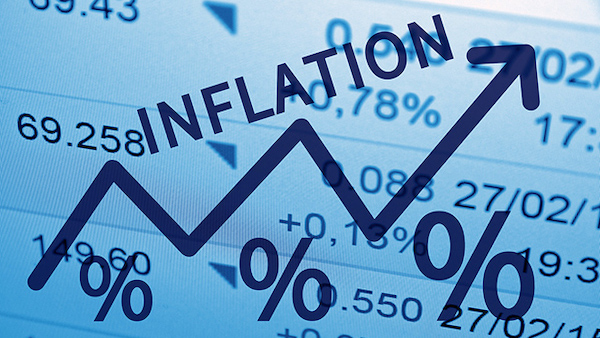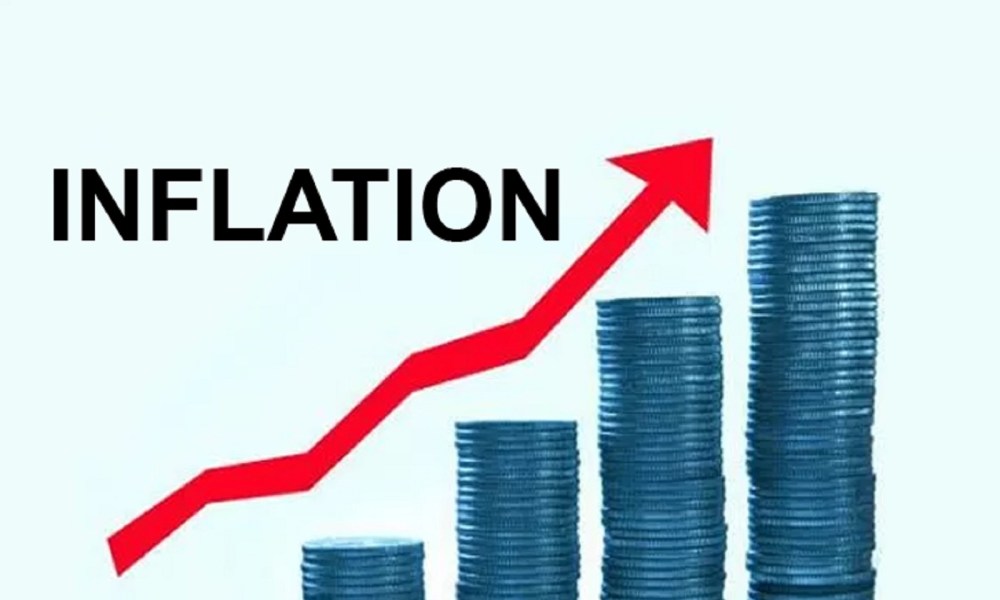The National Bureau of Statistics says Nigeria’s headline inflation rate increased to 22.04 per cent on a year-on-year basis in March 2023.
This is according to the NBS Consumer Price Index and Inflation Report for March 2023 released in Abuja on Monday.
According to the report, the figure is 0.13 per cent points higher compared to the 21.91 per cent recorded in February 2023.
It said on a year-on-year basis, the headline inflation rate in March 2023 was 6.13 per cent higher than the rate recorded in March 2022 at 15.92 per cent.
“This shows that the headline inflation rate (year-on-year basis) increased in March 2023 when compared to the same period in March 2022.”
The report said the contributions of items on the divisional level to the increase in the headline index are food and non-alcoholic beverages at 11.42 per cent and housing, water, electricity, gas and other fuel at 3.69 per cent.
Others are clothing and footwear at .69 per cent; transport at 1.43 per cent; furnishings, household equipment and maintenance at 1.11 per cent and education at 0.87 per cent and health at 0.66 per cent.
“Miscellaneous goods and services at 0.37 per cent; restaurant and hotels at 0.27 per cent; alcoholic beverage, tobacco and kola at 0.24 per cent; recreation and culture at 0.15 per cent and communication at 0.15 per cent.”
It said the percentage change in the All-Items Index in March 2023 was 1.86 per cent on a month-on-month basis.
“This indicates a 0.15 per cent increase compared to the 1.71 per cent recorded in February 2023.
”This means that in March 2023, on average, the general price level was 0.15 per cent higher relative to February 2023.”
The percentage change in the average CPI for the 12 months ending March 2023 over the average of the CPI for the previous 12 months period was 20.37 per cent.
“This indicates a 3.83 per cent increase compared to the 16.54 per cent recorded in March 2022.”
It said increases were recorded in all Classification of Individual Consumption by Purpose (COICOP) divisions that yielded the headline index.
The report said the food inflation rate in March 2023 was 24.45 per cent on a year-on-year basis, which was 7.25 per cent higher compared to the rate recorded in March 2022 at 17.20 per cent.
“The rise in food inflation is caused by increases in prices of bread and cereals, potatoes, yams and other tubers, and oil and fat, fish, vegetable, fruits, meat, and spirits.”
It said on a month-on-month basis, the food inflation rate in March was 2.07 per cent, which was a 0.16 per cent rise compared to the rate recorded in February 2023 at 1.90 per cent.
The report said the “All items less farm produce’’ or Core inflation, which excludes the prices of volatile agricultural produce stood at 19.86 per cent in March 2023 on a year-on-year basis.
“This increased by 5.94 per cent compared to 13.91 per cent recorded in March 2022.”
“On a month-on-month basis, the core inflation rate was 1.84 per cent in March 2023, which was a 0.78 per cent rise compared to what it stood at in February 2023 at 1.06 per cent.”
According to the report, the highest increases were recorded in prices of gas, passenger transport by Air, liquid fuel, fuels, lubricants for Personal transport equipment, and vehicles spare parts.
“Others are maintenance and repair of personal transport equipment and solid fuel, medical services, and passenger transport by road, among others.
“The average 12-month annual inflation rate was 17.41 per cent for the 12 months ending March 2023, this was 3.85 per cent points higher than the 13.56 per cent recorded in March 2022.”
The report said on a year-on-year basis in March 2023, that the urban inflation rate was 23.07 per cent, which was 6.63 per cent higher compared to the 16.44 per cent recorded in March 2022.
“On a month-on-month basis, the urban inflation rate was 2.00 per cent in March 2023, representing a 0.15 per cent rise compared to February 2023 at 1.85 per cent.”
It said the corresponding 12-month average for the urban inflation rate was 21.00 per cent in March 2023.
“This was 3.90 per cent higher compared to the 17.10 per cent reported in March 2022.”
The report said on a year-on-year basis in March 2023, the rural inflation rate was 21.09 per cent, which was 5.67 per cent higher compared to the 15.42 per cent recorded in March 2022.


